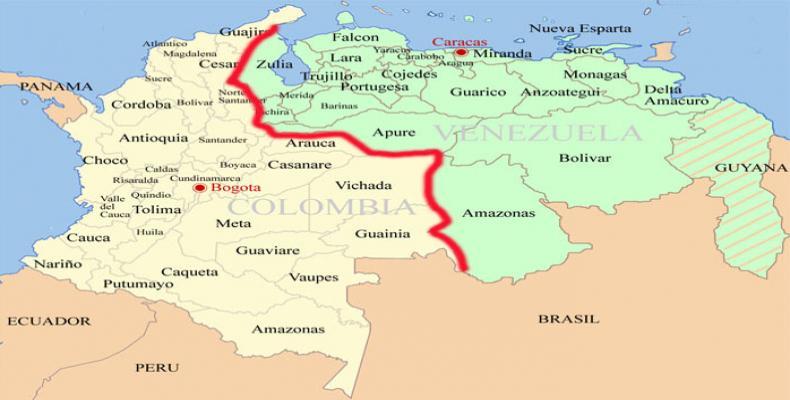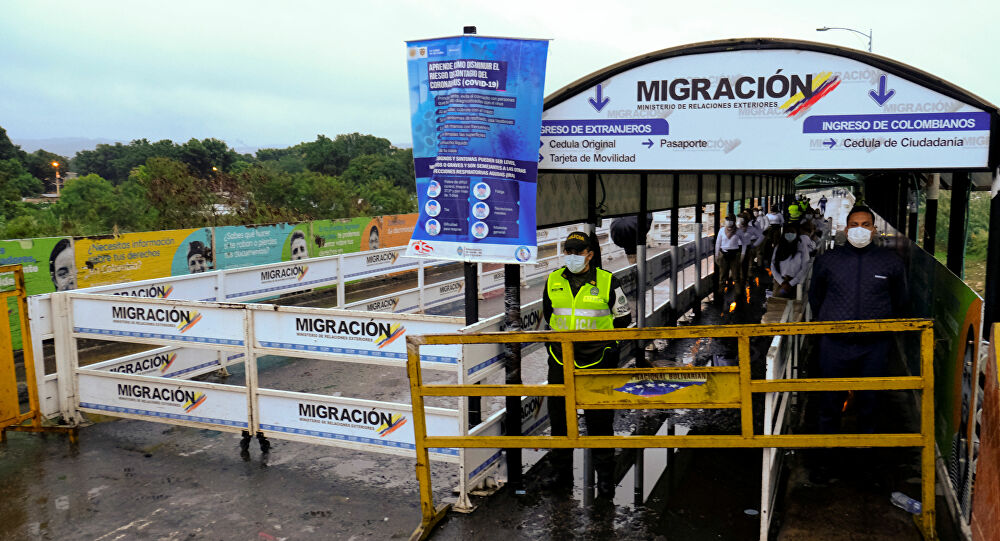RIO DE JANEIRO, BRAZIL – Colombia has closed all border crossings with Venezuela in the early hours of Saturday, March 14th, as part of new actions to contain the spread of the coronavirus in its territory. This is done “as a precautionary measure in view of the situation that is also occurring in the neighboring country,” announced on Friday night the Colombian president, Iván Duque, in a statement made after holding meetings with his government team.

He has also decided to restrict, as of March 16th, the access of citizens of other countries who are not residents in Colombia and have been in Europe or Asia over the past two weeks. Colombian passengers and residents will be required to undergo compulsory preventive isolation for 14 days, as determined on Wednesday by the health authorities for all travelers coming from Spain, France, Italy, and China.
Colombia, with 16 confirmed cases since the first test came back positive a week ago, declared a health emergency in the face of the coronavirus crisis as part of the pandemic’s containment stage. The executive has adopted measures such as canceling events involving more than 500 people, suspending cruise ships landing and encouraging teleworking. The government of Nicolás Maduro, on the other hand, confirmed its first two contagions by the Covid-19 on Friday, March 13th.
Two weeks ago, Colombia stepped up its migration controls as part of its preparations to try to stop the spread of the virus. The over 2,200-kilometer border with Venezuela, a country that has suffered a collapse of its health system, was from the outset one of the Colombian authorities’ greatest concerns, by far the main destination of the massive exodus of Venezuelans, with more than 1.7 million migrants in its territory.
The potential spread of the Covid-19 through the migratory flow alarmed authorities, who had already announced new controls in the border department of North Santander, according to guidelines established by the Health Ministry. The measures included the installation of points for hand hygiene, a Risk Assessment Room and random monitoring of migrants, as well as the mobilization of ten epidemiologists along the border.

The seven land border locations that officially serve as migratory crossings were closed from 5 AM on Saturday. “We will take all measures, with the support of the Public Force, health authorities and transport, to ensure that the decision is complied with,” said the President’s border manager, Felipe Muñoz.
Although Migración Colombia (the office in charge of migration control) has also announced permanent monitoring activities, there are myriad illegal crossings along an extensive border line, where, historically, smugglers of all kinds have entered. Several armed groups, both guerrilla and paramilitary, operate in different places along the border. In fact, President Duque has persistently denounced in international forums that Maduro has turned Venezuela into a sanctuary for terrorist groups, particularly the National Liberation Army (ELN) and dissidents of the now-extinct FARC, which have distanced themselves from the peace agreement.
Bogotá and Caracas have had no diplomatic relations since February 2019. Duque promotes the so-called “diplomatic siege” against the Chavista regime and does not recognize the government of Maduro, to which he often refers as “dictator”. The Colombian president is also one of the main supporters of opposition leader Juan Guaidó, who has been recognized as interim president of Venezuela by 60 countries. And this unreserved support has increased tension between the two neighbors.
Source: El País

